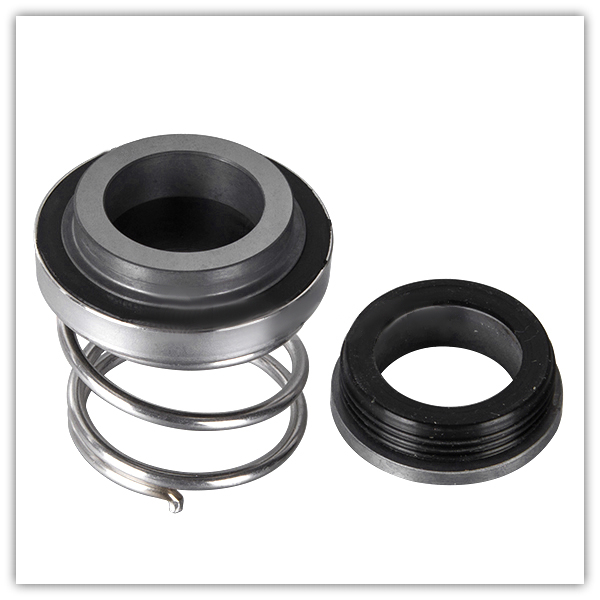
There are two types of water pump seals, namely packing or mechanical seals. The sealing material is selected according to the actual needs of the working conditions. Generally, packing seals are selected. Common materials include carbon fiber, ramie fiber, and aramid fiber. Mechanical seals are divided into hard mechanical seals and packing mechanical seals. Common materials for hard mechanical seals are graphite, ceramics, cemented carbide, and silicon carbide.

Graphite, there are two different sintered graphites, namely carbon graphite and electrochemical graphite. Carbon graphite is hard and brittle, with low strength, and electrochemical graphite is soft and has good self-lubrication.
Graphite material has good self-lubrication and thermal conductivity, good corrosion resistance, thermal shock resistance, and low friction coefficient, but it does not have the performance of resistant to strong oxidizing media. The disadvantage is that the porosity is large and the mechanical strength is low. Therefore, when using graphite as a soft surface material, it is necessary to use impregnation and other methods to fill the pores and improve the mechanical strength of the graphite material.
Therefore, it is also very important to choose a suitable impregnating agent. The properties of the impregnating agent determine the chemical stability, thermal stability, mechanical strength, temperature, etc. of the graphite material. Commonly used impregnating resin materials include phenolic resin, epoxy resin, furan resin, etc. Phenolic resin has good acid resistance, epoxy resin has good alkali resistance, and furan resin has good acid and alkali resistance. Commonly used impregnating metals include babbitt alloy, copper alloy, aluminum alloy, antimony alloy, etc. The impregnated metal graphite mainly uses 90MPa, and the use temperature can reach 500℃; the use temperature of carbon graphite impregnated with copper or copper alloy is 300℃; the use temperature of carbon graphite impregnated with babbitt alloy is 120~180℃.
In summary, it is generally believed that graphite materials impregnated with resin or metal have good thermal conductivity and self-lubrication, and should be given priority; for strongly oxidizing media, ceramic materials should be used; for media containing particles, hard-to-hard friction pair materials should be used, such as tungsten carbide-tungsten carbide; for strongly corrosive media, filled polytetrafluoroethylene-ceramic, etc. should be used.
According to statistics, about 80% to 95% of mechanical seal leakage is caused by the friction pair of the sealing end face. In addition to keeping the sealing surface parallel, the main problem is the material of the friction pair.
1. High mechanical strength, strong pressure resistance and deformation resistance;
2. Dry wear resistance, high load resistance, and good self-lubricating performance;
3. Good running-in of the paired materials, without excessive wear and dual corrosion;
4. Good wear resistance and long service life;
5. Good thermal conductivity and heat dissipation;
6. Good high temperature resistance;
7. Good thermal cracking resistance;
8. Strong corrosion resistance;
9. Small linear expansion coefficient, good resistance to thermal deformation and good dimensional stability;
10. Good cutting processability and good forming performance;
11. Good air tightness;
12. Low density.